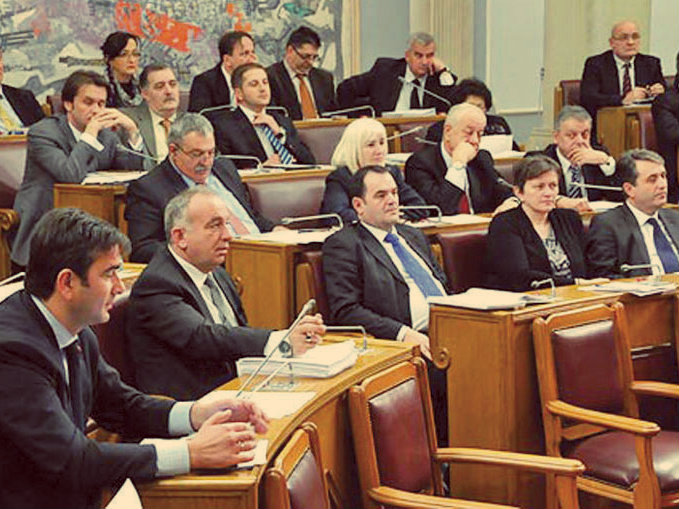 MANS today published the first report of the Committee on Anti-Corruption of the Parliament of Montenegro, which covers the period from December 1st 2012 until July 15 2014, and which shows that exists, when it comes to that working body, a significant room for improvement space for improvement of its activities, work cover and the impact on the overall results in the fight against corruption and organized crime.
MANS today published the first report of the Committee on Anti-Corruption of the Parliament of Montenegro, which covers the period from December 1st 2012 until July 15 2014, and which shows that exists, when it comes to that working body, a significant room for improvement space for improvement of its activities, work cover and the impact on the overall results in the fight against corruption and organized crime.
Since the constitution of the Anti-Corruption Committee in December 2012 until mid-July 2014, which is the period that this report relates, that body held a total of 18 sessions on which 36 agenda items were discussed related to the fight against corruption.
The Parliament adopted amendments to the Law on confidentiality of data which granted the access to classified information to the members of the Anti-Corruption Committee. The committee held a total of four control and three consultative hearings, received 11 complaints filed by NGOs and citizens, of which the most was considered, and issued a total of 12 conclusions.
Just a small part of activities from the work plan of the Committee for the previous year was implemented, and that body has limited results in this year as well.
As the head of the Committee is representative of the opposition, but the structure of that body is not proportionate to the balance of power in the Parliament, but to the members of the Parliament from the ruling parties significantly allows blocking debate on topics that they do not want to start. Recent work of the Committee confirms that this majority in same cases by mare voting, or by other types of blocking, prevented any discussion on issues of importance to the fight against corruption. It certainly affected implementation of the Committee’s work plan, and the concrete achievements of the body when it comes to reforms in the fight against corruption and organized crime.
The composition of the Committee should be changed, and the balance of power between the authorities and the opposition must be at least consistent with the one from the Parliament, and also in favor of the parties that do not participate in the government, so their control initiatives are strengthen, especially for the reason that this Committee deals with the fight against corruption.
It is necessary to amend the Rules of Procedure to allow the board to, as a parent work body, to consider and other law drafts and to expand the scope of work of all the key areas essential to the fight against corruption, including and political corruption, especially in the electoral process.
The report made by MANS will be submitted to the President and all the members of the Anti-Corruption Committee, and we hope that this body will consider it with due diligence, in order to further improve the work of one of the most important working bodies of the European integration process, bearing in mind that the fight against corruption is the number one priority of Montenegro on its European path. The report will also be delivered to the representatives of the executive and judicial authorities in Montenegro, independent institutions, non-governmental organizations and representatives of the international community in Montenegro.
This report was prepared with support from the Royal Netherlands Embassy in Belgrade and the British Embassy in Podgorica.
More information about the work of the Anti-Corruption Committee are available in the attached report, which is also available on the website of MANS.
Vuk Maras
Director of Monitoring Program



